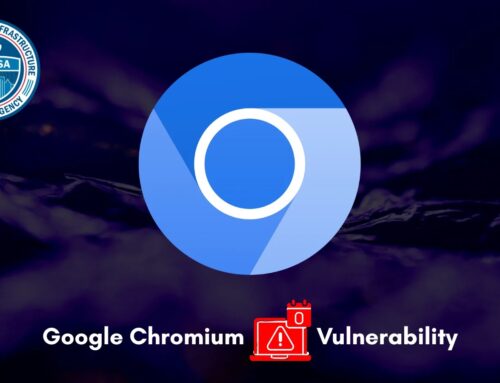
Open VSX Registry Addresses Leaked Tokens and Malicious Extensions in Wake of Security Scare
The digital landscape is a constant battleground, and even the tools developers rely on are not immune to sophisticated attacks. A recent security incident involving the Open VSX Registry and the Eclipse Foundation brought this reality into sharp focus, exposing critical vulnerabilities related to leaked developer tokens and the proliferation of malicious extensions. This comprehensive response details how the platform is strengthening its defenses across the entire VS Code extension ecosystem following the breach, offering crucial lessons for developers and security professionals alike.
The Core of the Breach: Leaked Tokens and Malicious Extensions
The security incident began with researchers at Wiz identifying multiple extension publishers on the Open VSX Registry with exposed access tokens. These tokens, crucial for authentication and authorization, were inadvertently leaked, primarily due to improper handling within the publishing workflow. Such leaks immediately present a significant risk, as malicious actors could potentially leverage these tokens to:
- Impersonate legitimate publishers.
- Upload altered or entirely new malicious extensions.
- Gain unauthorized access to other developer resources.
Compounding this issue, the investigation also uncovered instances of actively malicious extensions finding their way onto the platform. These extensions often masquerade as legitimate tools but harbor hidden capabilities designed to compromise developer machines, steal sensitive data, or introduce backdoors into development environments. The impact of such threats extends far beyond the individual developer, potentially cascading into supply chain attacks that affect countless end-users.
Open VSX Registry’s Proactive Remediation and Enhanced Security Measures
The Open VSX Registry and the Eclipse Foundation responded decisively to the breach, implementing a multi-faceted approach to remediation and bolstering long-term security. Their actions underscore a commitment to maintaining a trustworthy and secure environment for the global VS Code extension community.
- Token Invalidation and Renewal: A critical first step involved the immediate invalidation of all potentially compromised developer tokens. Publishers were then guided through a secure process to generate new, untainted tokens. This action dramatically reduced the attack surface for token-based exploitation.
- Enhanced Publishing Process: The publishing workflow itself underwent a rigorous review and overhaul. New safeguards were implemented to prevent future token exposure, likely involving stricter validation checks, secure storage mechanisms for credentials, and developer education on best practices for token management.
- Malicious Extension Removal and Detection: All identified malicious extensions were promptly removed from the registry. Furthermore, the Open VSX Registry is investing in more robust automated and manual detection mechanisms to proactively identify and block suspicious extensions before they can inflict harm. This includes static and dynamic analysis of extension code, as well as community reporting tools.
- Improved Security Auditing and Monitoring: The incident prompted a significant upgrade in security auditing and continuous monitoring capabilities. This ensures that potential vulnerabilities and anomalies are detected and addressed in real-time, preventing future breaches from escalating.
- Collaboration with the Cybersecurity Community: The involvement of researchers like those at Wiz highlights the importance of collaborative security efforts. The Open VSX Registry has reinforced its commitment to working with security researchers to identify and report vulnerabilities responsibly.
Remediation Actions for Developers
For developers who use or publish extensions on the Open VSX Registry, immediate and ongoing actions are essential to maintain a secure development environment:
- Review and Rotate Tokens: All publishers should regularly review their access tokens and rotate them periodically, even if no breach has been reported. Treat tokens with the same sensitivity as passwords.
- Audit Installed Extensions: Regularly audit your installed VS Code extensions. Remove any extensions that are no longer needed, originate from unknown sources, or exhibit suspicious behavior.
- Verify Extension Authenticity: Before installing any extension, verify its authenticity, publisher reputation, and reviews. Be wary of extensions with generic names or limited information.
- Practice Least Privilege: Ensure that your development environment and user accounts operate with the principle of least privilege, minimizing the potential impact of a compromise.
- Update VS Code and Extensions: Keep your VS Code IDE and all installed extensions updated to the latest versions. Updates often include critical security patches.
- Use Security Tools: Employ endpoint detection and response (EDR) solutions and other security software on your development machines to detect and prevent malware.
- Stay Informed: Follow official security advisories from the Open VSX Registry, Eclipse Foundation, and other relevant cybersecurity news sources.
Tools for Extension Security and Analysis
Several tools can aid developers and security professionals in assessing the security of VS Code extensions and identifying potential threats.
| Tool Name | Purpose | Link |
|---|---|---|
| VS Code Marketplace Security Scan (Unofficial) | Identifies common security issues in VS Code extensions. | https://github.com/microsoft/vscode-extension-scanner |
| ESLint | Static analysis tool for identifying problematic JavaScript patterns, including potential vulnerabilities. | https://eslint.org/ |
| npm audit | Scans project dependencies for known vulnerabilities. | https://docs.npmjs.com/cli/v9/commands/npm-audit |
| Snyk | Automated security testing for open source dependencies and container images. | https://snyk.io/ |
| Dependency-Track | Open-source component analysis platform that provides a complete bill of materials and proactively identifies vulnerabilities. | https://dependencytrack.org/ |
Key Takeaways for a Secure Development Ecosystem
The Open VSX Registry incident serves as a stark reminder of the persistent and evolving threats within software supply chains. The swift and comprehensive response by the Eclipse Foundation demonstrates a commendable commitment to security. For developers, the imperative is clear: vigilance, responsible credential management, and diligent extension vetting are not optional. As we continue to rely heavily on open-source ecosystems, fostering a culture of shared security responsibility becomes paramount to protecting our digital infrastructure from the ground up.





